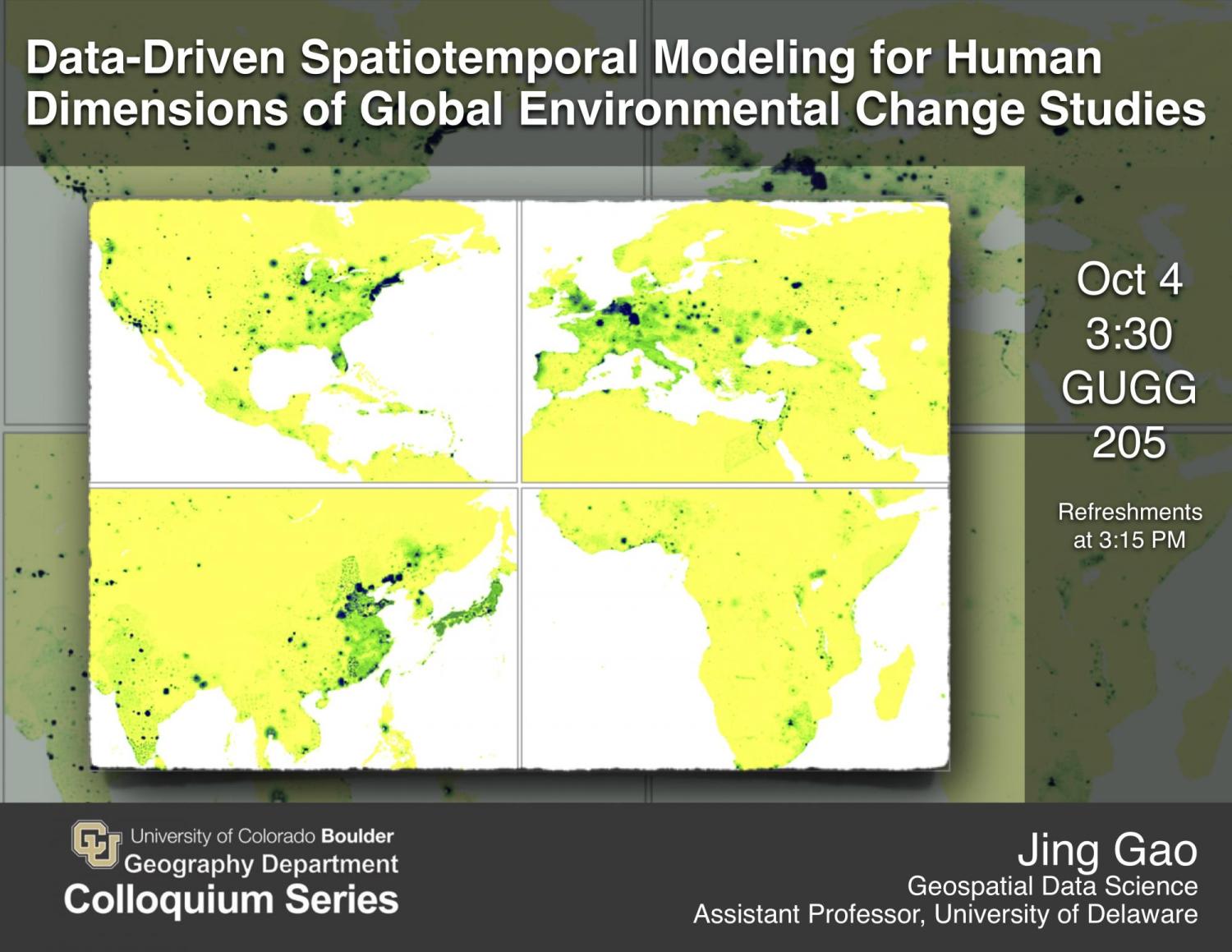Jing Gao: Data-Driven Spatiotemporal Modeling for Human Dimensions of Global Environmental Change Studies
Jing Gao
Assistant Professor of Geospatial Data Science
Affiliated with the Department of Geography and the Data Science Institute
University of Delaware
Abstract:
Over the 21st century global environmental change may pose critical challenges for societies across the world. To understand its potential impacts, global long-term spatial projections of societal conditions are needed as well as those of physical environmental stressors. Due to the lack of spatially-explicit large-scale time-series observational data, human-dimension studies conventionally often had to limit their scales or/and scopes, though the big picture of global patterns and long-term trends are needed for national and international assessments and decision making. With recent unprecedented development in geospatial data availability and computational technology, many new advancements become attainable. In this talk, I will present two projects: (1) a creative application of machine learning and data mining for simulating global spatiotemporal patterns of urban land expansion over the 21st century, using best available data on urbanization, spatial population, and economic development, including a global time series of fine-spatial-resolution remote-sensing observations spanning the past 40 years, and (2) a theoretical data-science effort developing new model diagnosis method to aid the design and the performance improvement of data-driven geospatial models. Both works demonstrate rewards and challenges of employing data-driven methods for studying long-term large-scale human-environment interactions.
Bio:
Jing Gao is an Assistant Professor of Geospatial Data Science at the University of Delaware, affiliated with the Department of Geography and the Data Science Institute. Her research investigates large-scale human-environment interactions, especially the relationship between global urban land use, population, and climate change. Trained in Geography and Computer Science, she approaches interdisciplinary scientific inquiries by integrating diverse data, quantitative and computational methods from spatial statistics, machine learning, big data mining, geo-visualization, and remote sensing, with narrative-based scenario analyses of societal development. Her research is generating new insights and datasets on global, long-term, spatially-explicit changes in urbanization and population characteristics, extending the SSP-RCP scenario framework used by the IPCC and the research community for understanding global environmental change impacts, spearheading creative data-science practices in long-term spatially-explicit modeling of socioeconomic processes, and developing new methods for evaluating the uncertainty and the success of such practice.


